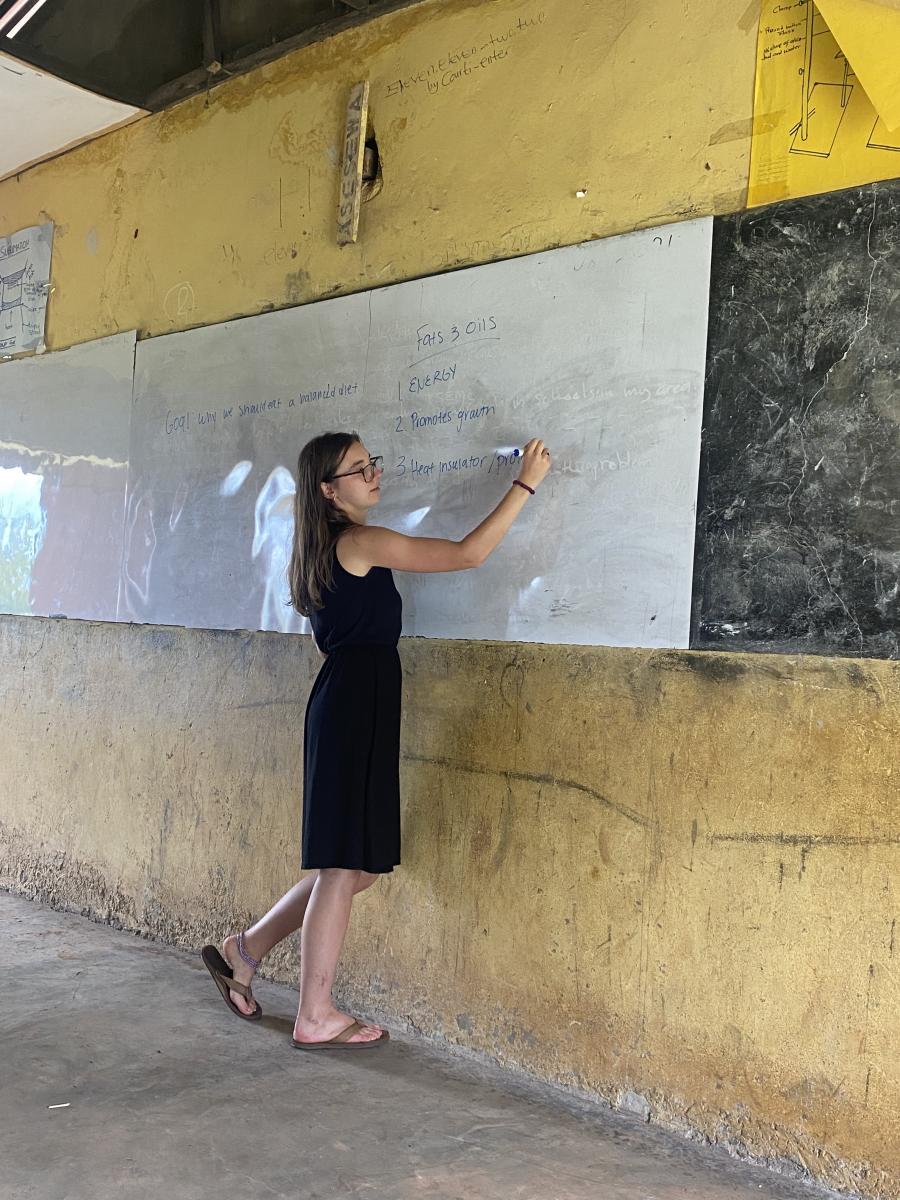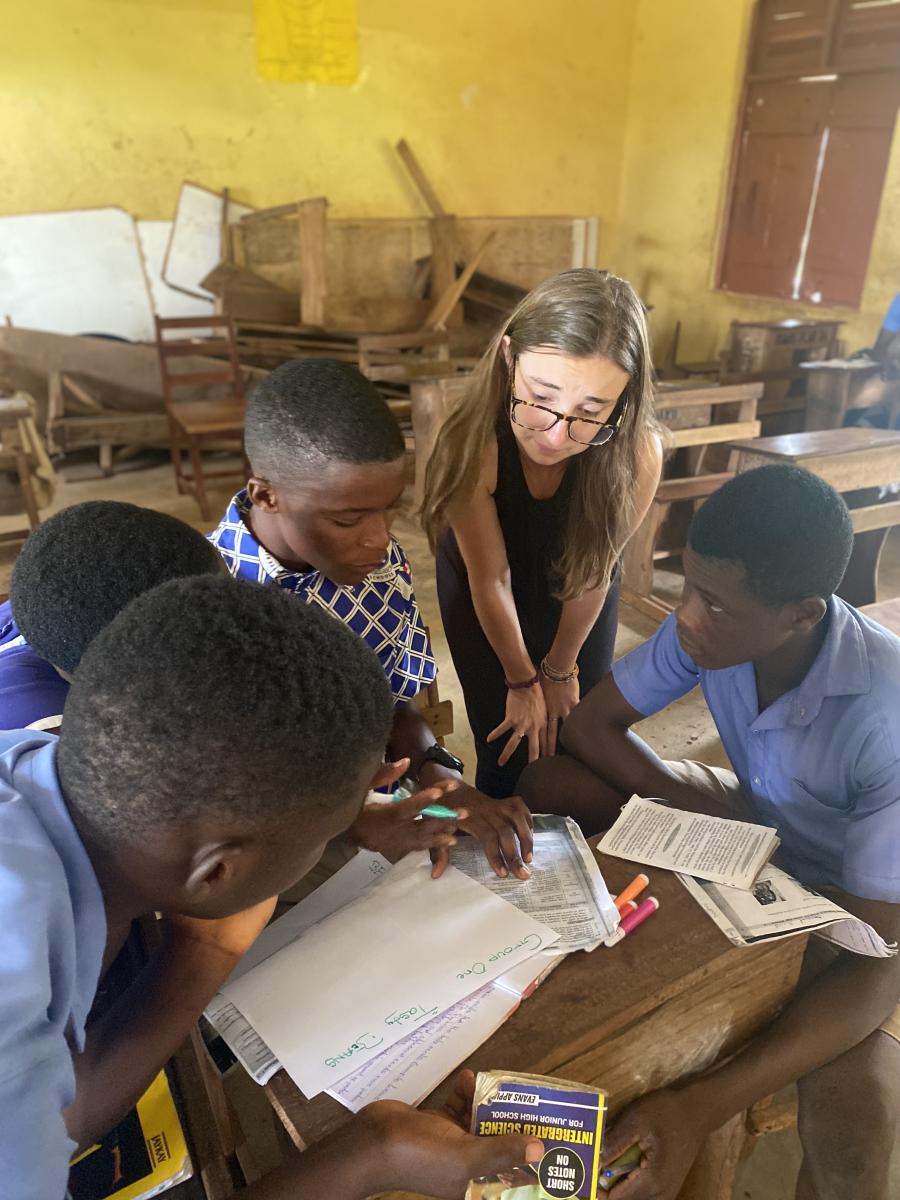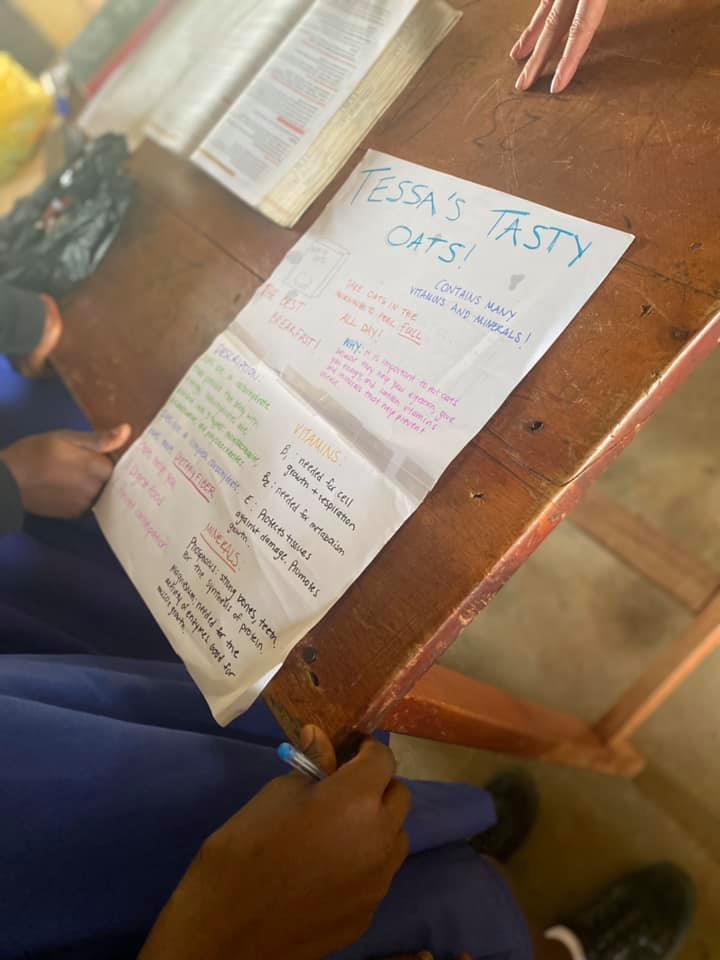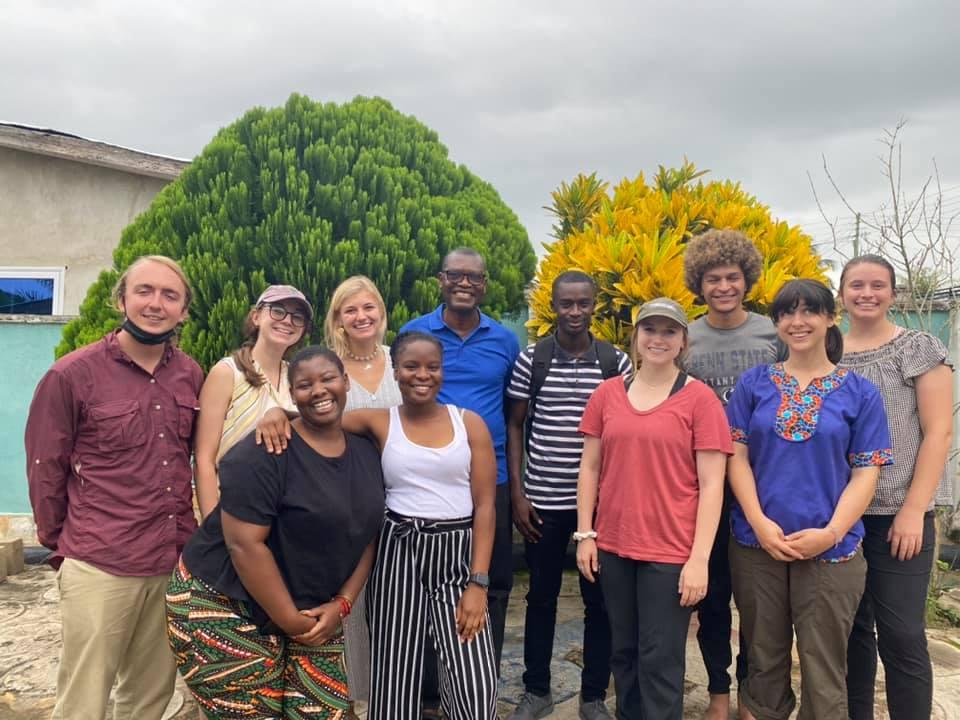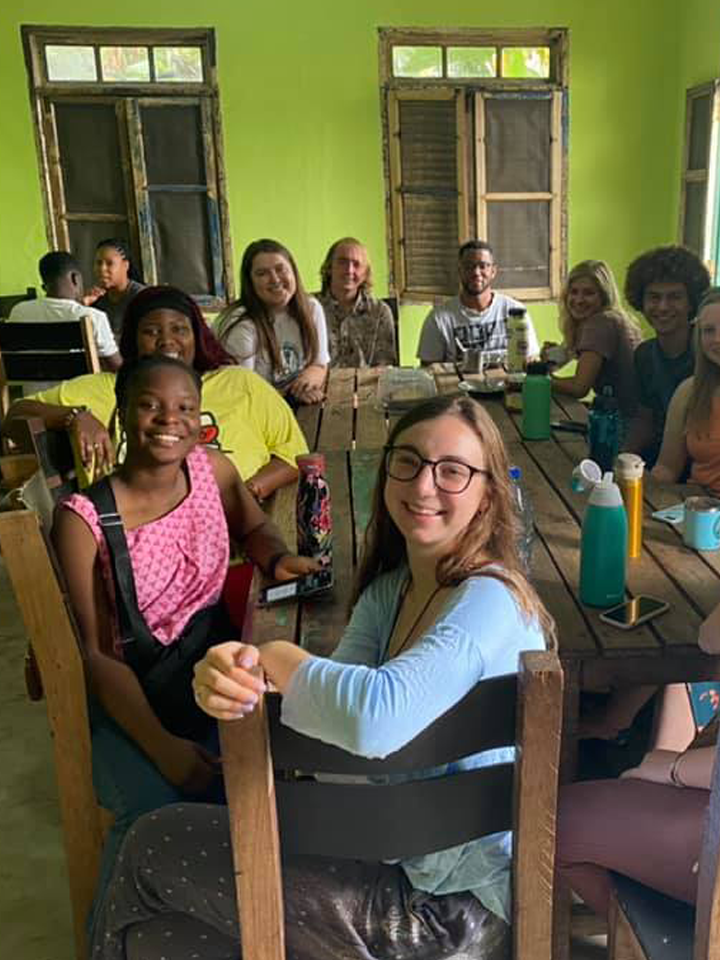
Meet Tessa Hawley

FAS: Why did you choose to pursue agriculture as your field of study?
Tessa: One of my favorite professors, Dr. George Norton, inspired me by his own personal stories working abroad in the Peace Corps and talking about the importance of agriculture. Dr. Norton was able to frame the policy, information, and theories surrounding economic development and agriculture in a way that helped me become aware and understand the issues. This wasn’t something I knew about previously and the information he taught really pushed me toward majoring in ag economics.
FAS: What's something from your degree that you're excited to be applying in Ghana?
Tessa: I'm excited to be applying my basic economic information. I'm planning on doing a few sessions with farmers and my students about basic financial literacy. Hopefully those sessions can help them with their own financials, decision making, and planning, all things involved in ag.
FAS: As a fellow, what do you think is essential to an ag instructor's toolkit?
Tessa: The thing that I use the most, both as a tool and symbolically, would be my machete. They call it a cutlass here. It's seen as a universal symbol for being a farmer in Ghana and people will ask you, "Are you a farmer?" It's a good tool to always have with you because you can go to the garden and help with anything that needs to be done. Going to the garden gives me an opportunity to connect with farmers after school and have good conversations with people in the community.
FAS: What inspires you in your role as a fellow?
Tessa: My students inspire me the most because despite the number of responsibilities and pressures they have at such a young age, they are still excited to be in school and to learn. Even though they have a lot going on, they can set that aside in the classroom and be positive people.
FAS: What would you like for people to remember about teachers?
Tessa: Teachers are important because they are shaping the next generation of a country. They are attempting to help a generation change. In a developing country, that's especially difficult and important. A lot of students I teach come from families in homes where they are the first person to be literate. Teachers often offer support, encouragement, and empowerment to children that otherwise wouldn't receive it at home due to the generational divide in education.
FAS: Tell us about one of your activities or lessons in the fellowship program.
Tessa: In teaching a nutrition lesson, I was hoping that students would think about what they're eating, if they're eating a balanced diet, and if they can spot malnutrition. I feel it's important to bring to their awareness that they should be eating more fruits and vegetables. Students also had to do research on which minerals and vitamins different foods provide and how those help their body. I wanted to teach them about nutrition because it's an important topic to educate young people about.
FAS: What have you appreciated about your time in the fellowship program that you want to bring back to your ag peers in the United States?
Tessa: People here are very interested in organic farming and mechanization. It would be interesting to bring that knowledge back to the United States and help figure out ways to improve access to information and resources for the community here. During my fellowship, I hope to work towards that. And there are interesting topics to delve into because there is growing interest in Ghana, just like at home. People are interested in conservation agriculture and climate change.
Photo Highlights: Tessa Hawley
